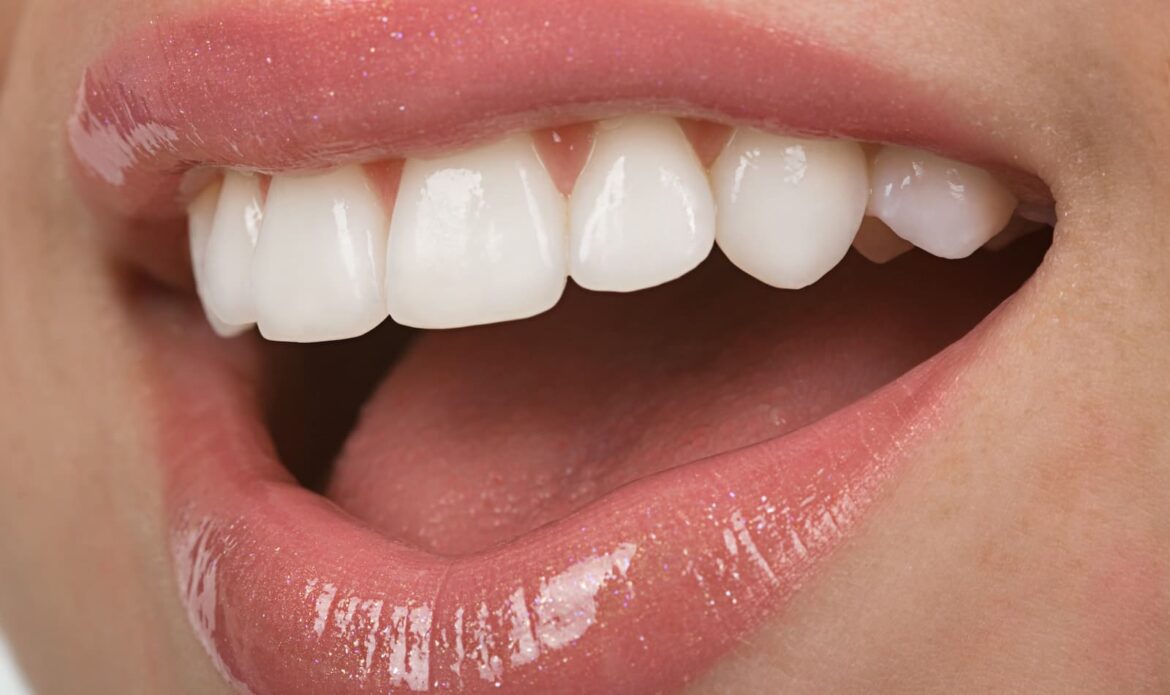Many people wonder whether tooth enamel can be restored. It is an essential component of dental health. But what happens when it is damaged? We provide answers.
Restoring tooth enamel: What causes tooth enamel loss?
Tooth enamel is the outer protective layer of your teeth and plays a crucial role in dental health. It protects the teeth from acids and bacteria that can cause tooth decay. However, enamel can be damaged by various factors, such as acidic foods or poor oral hygiene. Once enamel has been damaged, the question arises as to whether and how it can be restored.
- Acidic foods and drinks are among the most common causes of enamel loss. These include not only soft drinks and fruit juices, but also acidic foods such as citrus fruits and tomatoes. These can attack the enamel and gradually break it down, leading to sensitive teeth and an increased risk of tooth decay.
- Inadequate oral hygiene can also contribute to enamel loss. If plaque is not removed regularly, the bacteria it contains can produce acids that attack the enamel. Thorough dental care, including regular brushing and flossing, is crucial for protecting tooth enamel.
- Teeth grinding, also known as bruxism, can cause significant damage to tooth enamel. The constant pressure and friction caused by grinding can wear down the enamel and leave teeth vulnerable to further damage. Bruxism is often triggered by stress or sleep disorders, and treatment, such as wearing a mouth guard or splint, can help preserve dental health.
- Certain medical conditions, such as gastroesophageal reflux disease (GERD), can also lead to enamel loss. In GERD, stomach acid enters the oral cavity, which attacks the enamel. Treating the underlying condition can help protect the enamel and prevent further damage.
What restoration methods are available?
When tooth enamel is damaged, many people look for ways to restore it. There are various approaches and products designed to help strengthen and repair tooth enamel. But which of these are truly effective, and which have advantages and disadvantages?
- Fluoride is one of the best-known agents for strengthening tooth enamel. It helps to replenish minerals in the enamel and make it more resistant to acids. Many toothpastes and mouthwashes contain fluoride and, when used regularly, can help to protect and strengthen tooth enamel.
- Remineralizing toothpastes are specially formulated to rebuild enamel. They contain ingredients such as calcium and phosphates, which help repair and strengthen enamel. These toothpastes can be particularly helpful for people with sensitive teeth or a high risk of tooth decay.
- Professional dental treatments can also help restore tooth enamel. Dentists can offer fluoride treatments or sealants that protect and strengthen tooth enamel. These treatments are especially recommended for people at high risk of tooth damage or tooth decay.
- Changing your diet can be an effective way to protect and strengthen tooth enamel. Avoiding acidic foods and drinks and consuming calcium-rich foods such as dairy products can help preserve tooth enamel and increase its resistance.
How can you protect your tooth enamel?
Caring for your tooth enamel is crucial for dental health. There are several measures you can take to protect your tooth enamel and support its restoration.
- Thorough dental care is the most important step in protecting your enamel. Regular brushing with fluoride toothpaste and flossing help remove plaque and protect your enamel.
- Avoiding acidic foods and drinks can also help protect your enamel. If you do consume acidic foods, be sure to rinse your mouth thoroughly with water afterward to neutralize the acid.
- Regular visits to the dentist are important for monitoring dental health and taking early measures to restore tooth enamel. Your dentist can give you personalized recommendations on how to best protect and strengthen your tooth enamel.
- Using dental care products that are specifically formulated to strengthen enamel can also be helpful. Look for products that contain fluoride, calcium, and phosphate to provide optimal protection for your enamel.

